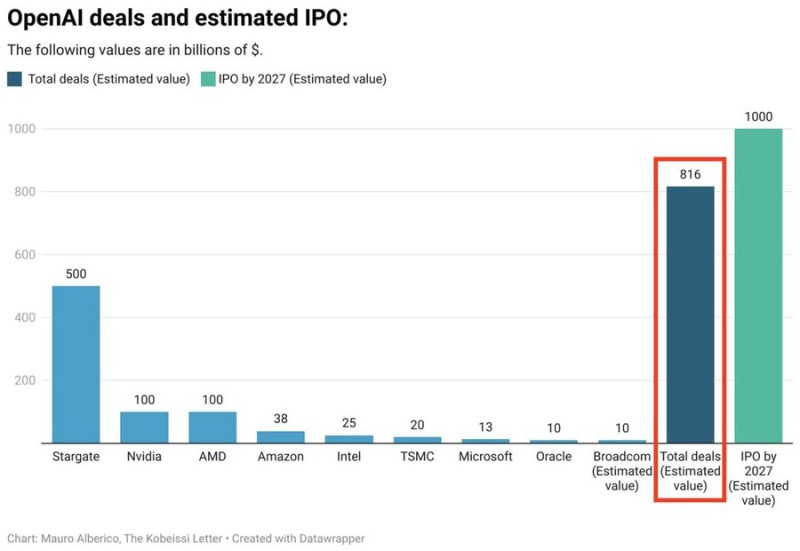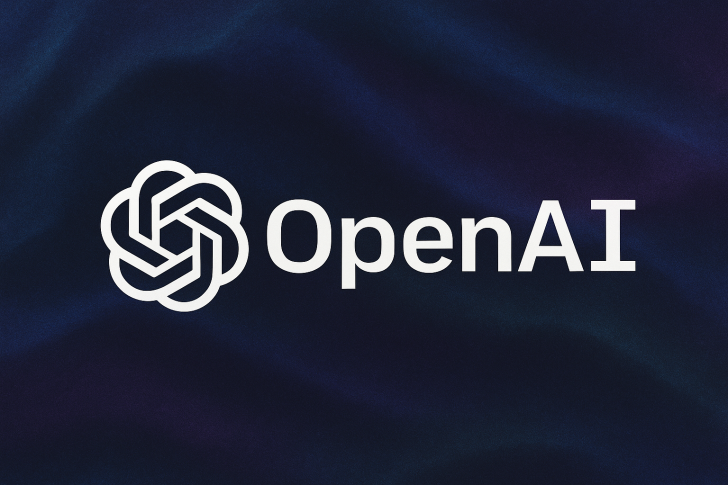OpenAI is making deals at a pace that's hard to wrap your head around. That's not a typo. We're talking about half-trillion-dollar infrastructure projects, massive chip deals, and cloud computing alliances that dwarf anything we've seen before. The big question now: is OpenAI building the foundation of a new industrial era—or racing toward an unsustainable bubble?
The Numbers Behind the Hype
According to a chart shared by The Kobeissi Letter on X, the company has racked up roughly $816 billion in partnership value across the global tech landscape.

OpenAI's partnership web is vast, and the biggest players are all in:
- Stargate: $500 billion (likely involving next-gen data centers and energy infrastructure)
- Nvidia and AMD: ~$100 billion each (chips and compute power)
- Amazon: $38 billion (cloud infrastructure)
- Intel: $25 billion
- TSMC: $20 billion (semiconductor manufacturing)
- Microsoft: $13 billion
- Oracle and Broadcom: $10 billion each
Add it all up and you get $816 billion in estimated deal value. The chart also projects OpenAI could hit a $1 trillion valuation at IPO by 2027, which would make it one of the top five companies in the world.
What This Really Means
This isn't just about one company getting big—it's a signal that AI infrastructure is becoming the economic backbone of the next decade, much like energy or semiconductors were in past eras. Training massive models like GPT-5 requires enormous compute, which is why hardware giants and cloud providers are so deeply involved.
But there's a catch. OpenAI is spending at a blistering pace—on GPUs, electricity, talent, and infrastructure—and it's unclear if revenue from ChatGPT subscriptions and enterprise deals can keep up.
Investors are torn. Bulls say OpenAI's dominance in generative AI justifies the valuations. Bears warn of "AI valuation fatigue" and point to inflated expectations across the sector. Companies like Anthropic and Cohere have raised billions but still aren't profitable.
The Trillion-Dollar Question
If OpenAI does go public at a $1 trillion valuation, it would be a historic moment—not just for tech, but for the entire global economy. It would signal that AI has officially become infrastructure, not just software.
But it also raises a bigger concern: even with the world's richest companies pouring hundreds of billions into AI, the race for intelligence might be far more expensive—and less profitable—than anyone expected. The next couple of years will show whether OpenAI is building a sustainable empire or riding the crest of an overheated bubble.
 Saad Ullah
Saad Ullah

 Saad Ullah
Saad Ullah


